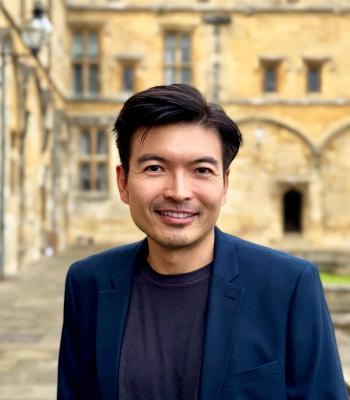Qualifications
BEcon Economics & Philosophy, MPhil Music (HKU); MSt Music (Oxford); FRSM Music Performance; PhD Musicology (Cornell)
Academic background
I am a cultural historian of political economy and music, and a performer on keyboard instruments both historical and modern.
I earned my PhD in musicology from Cornell University in December 2024. My dissertation, “Songs of Speculation: Music and the Rise of Finance during the 1720 South Sea Bubble,” uncovers the links between music and finance during the spectacular boom and bust of the early modern world’s first bubble economy. It was awarded Cornell’s Donald J. Grout Memorial Prize for an exceptional dissertation in music.
Before Cornell, I studied economics and philosophy (BEcon, University of Hong Kong) as well as music (MSt with distinction, University of Oxford; MPhil, University of Hong Kong). I trained as a keyboardist at the Royal Academy of Music in London and at McGill University in Montreal.
Undergraduate teaching
Prior to joining Christ Church, I served as Visiting Assistant Professor of Music at Hobart and William Smith Colleges and as a Teaching Associate at Cornell University.
I have taught introductory courses in Western music history, ethnomusicology, music theory and analysis, and music journalism; upper-level seminars on music and economics; and performance-based courses in historically informed performance, keyboard continuo, and chamber music.
I am committed to supporting undergraduate and graduate student projects and to peer mentoring with colleagues, with a particular focus on building multidisciplinary opportunities for research and teaching. At HWS, I designed Music and Money, the capstone course for the newly established Music Administration and Entrepreneurship minor, bringing business and music majors together in the same classroom to learn and collaborate. The course was first developed at Cornell, for which I was awarded the Mellon-endowed Don M. Randel Teaching Fellowship.
Research interests
My current research spans two main areas: one examines how eighteenth-century music registered and refracted the value regimes of early financial markets; the other traces China’s entanglement with global trade through the piano, exploring how keyboard instruments transplanted into China since the seventeenth century come to reveal the economic contingencies of cultural mobility within capitalist modernity’s evolving geopolitics. Though distinct in geography and timescale, these projects converge in examining music’s embeddedness in the economic realities and imaginaries of its time—and in showing how music can prompt us to think anew about a global history of capitalism.
In my work on the European eighteenth century, I am currently completing an article on the behavioral economics of street ballads during the South Sea Bubble. I argue that these songs mirrored the market’s stochastic dynamics, not only in their affective charge but also in the combinatorial and fungible logics of their circulation. They reveal how sonic analogies and speculative maneuvers were already entwined long before economists coined the term “market noise”—and long before the rise of a financialized cultural order in which creativity, circulation, and even sound itself could be conceived as assets and information.
For my China research, I am preparing a critical edition of the art songs for voice and piano by the Chinese-American linguist and musician (and Cornell alumnus) Chao Yuen-Ren. In collaboration with Ding Xiang Warner, the edition will include the first English translations of Chao’s extensive writings on Western music and Chinese phonetics, annotated to place them within the histories of Chinese diasporic intellectual life and transnational knowledge transfer.
I am also co-editing, with Kirsten Paige, a special issue of Keyboard Perspectives on “Global Keyboards.” The issue pursues two aims: first, to intervene in diffusionist narratives and ready-made West–East or North–South binaries in accounts of the keyboard’s global reach by advancing transnational histories grounded in local perspectives; and second, to redistribute knowledge within music historiography by foregrounding the expertise of diverse practitioners—instrument builders, technicians, brokers, and other long-overlooked figures whose work was indispensable in shaping music history.
My research has been supported by fellowships and grants, including from the American Musicological Society, the Huntington Library, the Beinecke Library at Yale, the Center for 17th- and 18th-Century Studies at UCLA, the Society for Eighteenth-Century Music, and Cornell’s Institute for European Studies, Council for the Arts, and Center for Historical Keyboards.
Entrepreneurial work
I am committed to engaging communities beyond my own field—and beyond academia—by curating and helping to facilitate conferences, exhibitions, and concert festivals. At Cornell, recent programs have included “Global Keyboards” Study Day (2025, with Kirsten Paige and Roger Moseley), “Chao Yuen-Ren’s Art of Songs” Concert-Symposium-Exhibition (2024), and “Sustaining Keyboards” Symposium (2023, with Annette Richards and David Yearsley).
Featured publications
Edited Volume:
Global Keyboards [Keyboard Perspectives XV]. Editor, with Kirsten Paige (forthcoming in late 2025).
Articles:
“Silver, Timber, and Labor: The First Made-in-China Piano.” Keyboard Perspectives XV (forthcoming).
(co-authored with Kirsten Paige) “Thinking Music History In Medias Res.” Keyboard Perspectives XV (forthcoming).
“Handel’s Financial Sublime.” In Financing Music in Europe from the 18th to the Early 20th Century, edited by Étienne Jardine. Brepols, 2022.
“Music in the Time of Bubbles: Sounding the Market in London, Paris, and Frankfurt.” Journal18 10 (2021): https://www.journal18.org/5472.
Reviews:
“The Organ in the Global Baroque.” Eighteenth-Century Music 16, no. 2 (2019): 189-192.
(co-authored with Jonathan Schakel) “Keyboard Networks: Interrogating the Cultures and Technologies of Music at the Keyboard,” Newsletter of the Westfield Center for Historical Keyboard Studies 27, no. 1 (2016): 4-7.


